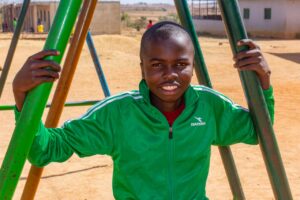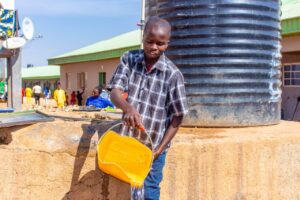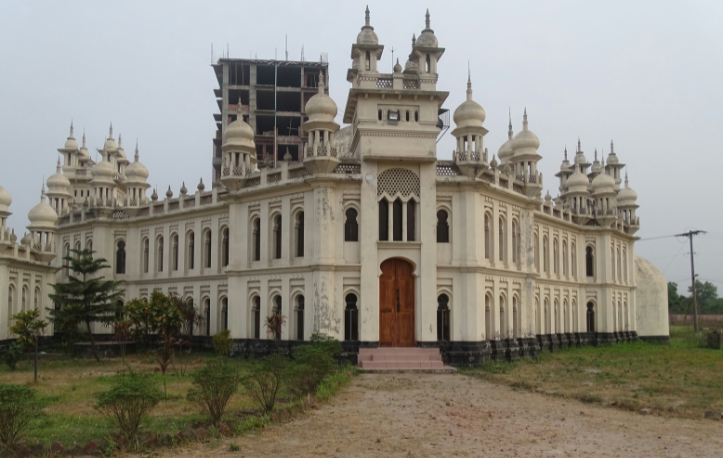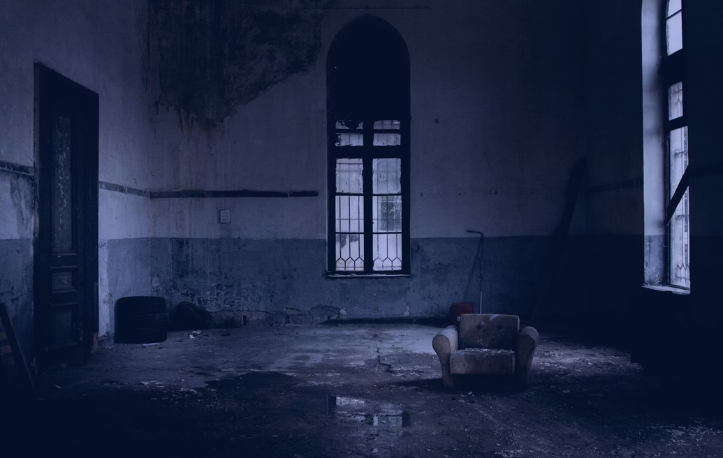VOM partners in Nigeria care for more than 300 children who have lost one or both parents or have been displaced due to religious violence. At their ministry centre, these children are lovingly cared for and receive a high-quality Christian education equipping them to eventually return to extended families to rebuild their home regions and Christian communities.
“It’s hard to explain how different it is to live where we all eat well – three meals every day, with clean water to drink, to take our baths, to wash our clothes each Saturday.
“We have new clothes. We have shoes. How good it is to play football with friends in the evenings without fear! We sleep in peace every night. We don’t listen for noises that warn us Fulani are near our village. We don’t have gunfire and terror at night. Instead, we hear singing. How can we explain how good peace is when all we remember is violence?

“My name is Julius Adamu. I am 14 years old, from Malagun Kagoro town of Kaura LGA of Kaduna State, Nigeria. I can speak Kagoro language, Hausa language, and now my English is getting better every day. I am the third born in the family, but my family is sad. The first sadness was our parents’ divorce. Our pastor was mad at them because divorce is bad for children. The family shared the bigger children between relatives: the two small ones followed my mother to her family village, but I stayed with my grandmother, who is very old. Life is hard for everyone because the Fulani herdsmen attack us again and again. There is no rest.
“It is like this: on good days we eat in the afternoon, so those evenings our bellies are not growling. Our village has no electricity, so we sit out with our neighbours, around a fire after dark. Sometimes we sing, or Grandmother tells us stories and the grown-ups talk until it is time to sleep on our mats. We had a kerosene lamp, but Fulani stole it. My grandmother’s house is the third house I can remember. Fulani burnt the other two and stole everything: our goats and chickens, even my two ducks. They shot our dog. All our yams and the ginger grown to pay our school fees, our maize, guinea corn, and millet from our grain store, her cooking things, farming tools, lamps, clothes, everything worth stealing.
“We hear faint noises far off in the bush: everyone is silent, standing to listen. Shouting in the distance. Fulani. We grab what we can and run fast into the bush, away from the shouting. My father helps my grandmother. Fulani have no mercy, even our elderly and our babies are killed. My father says the Fulani are full of tramadol, a drug that dulls their minds so they can do any wickedness. Our men used to try to defend our village, but Fulani have better guns. Too many of our men have died, so now we all run.
“In August 2020 our pastor brought me to the children’s crisis care home with two other children from our village so that we could go to school. It was a long time since I was in school so I could hardly remember my letters. I spent a year in the special class, learning English and learning to read again. Last September I started primary grade three. If I work hard here, I can get a good education. One day I will get a very good job, maybe I can be a doctor, so I can help my family. I love my family so much. This brings me back to great sadness again because of what happened at Christmas.
“My father was the only healthcare worker in our village, and I was very proud of him, running the village clinic and helping our people, but he was sick. He had viral hepatitis. Most of his salary was spent on expensive treatment every month, so he could keep working. Each time he would get a bit better then fall sick again. Hepatitis B cannot be cured with medicine. Maybe one day I will help find a way to heal it. At Christmas, my father was very sick with it, and our pastor helped me to go home to visit him during the school holidays.
“That was when the Fulani attacked again, Christmas Eve 2022. Grandmother had gone to stay with my aunty in another town and I was at home with my father. He was very sick in bed. It was night. We heard the noises, then the shouting. We knew what it was: we must run. My father tried, but he could not even stand. I bolted the doors and windows. Silently, desperately, we prayed, waiting in the dark.
“We heard them breaking into the house. We had to run. I tried to carry my father but could not. He unbolted the window shutter above his bed and ordered me to climb out and run. I was crying, No! No! He slapped my head and ordered me, trying to push me out the window. A Fulani herdsman burst through the bedroom door. There was nothing I could do so I jumped through the window. Another herdsman outside the house grabbed my shirt but it was loose, and I squirmed out and ran into the bush, blinded by tears. I am not ashamed that I cried because I knew back there, they were killing my father and I could do nothing except run. My father wanted me to live so I must run and stay alive.
“I kept running through the bush until the noise behind me was very faint, then I found a big tree and climbed high, where the branches were too thin to support the weight of any man pursuing me. No one did. I sat silently weeping through the night, watching the red light of our burning village in the distance gradually fade, after human noises stopped. The sounds of the bush slowly returned with the dawn.
“In the morning we all came back to the ruins of our village. The men were digging a grave for my father. His body was covered with a cloth, laid out before the roofless remains of our church. This time, his was the only body. We wept again. Now there would be no health care for our people. Another good man was gone, my father. My grandmother has no more sons. There was no joy in our village at Christmas.
“After we mourned our pastor gathered me and the other two and brought us back to the crisis-care home. It was not easy. We were very sad to leave our families in such trouble, rebuilding the village again. Many other villages in Kagoro LGA were also attacked around Christmas. Long before school started again on 9 January, most of us from Kaduna State, 40 of us, were back at the home, where it is safe. Our families want us to be safe, to give them hope for tomorrow. We know we must work hard in school because they will need us. There are still eight more Kaduna State children who have not yet returned. We don’t know if they are alive or killed, because the phones of their families and pastors are not contactable. We are praying that when the news finally comes it will be good.

“I know very well that God saved my life on Christmas Eve when my father died. I am thankful. I am sad that we lost my father. God saved me for a reason, and I want my life to count, for my family and for my people. I am grateful we have somewhere safe to come, where I am putting my trust in God and preparing for a better future, learning all I can in every way. I don’t want to fight people, to be an angry person, but someone who gives hope to other people, like the people here are giving us hope. I thank God for people who help children like me, to make tomorrow better.”




Submit a Prayer